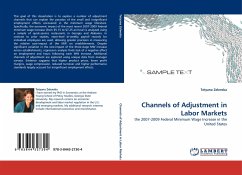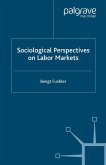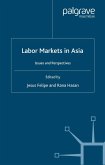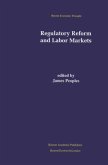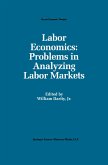This goal of this dissertation is to explore a number of adjustment channels that can explain the paradox of the small and insignificant employment effects uncovered in the minimum wage literature. Specifically, the economic impact of the most recent 2007-2009 Federal minimum wage increase (from $5.15 to $7.25 an hour) is analyzed using a sample of quick-service restaurants in Georgia and Alabama. In contrast to prior studies, store-level bi-weekly payroll records for individual employees are used, allowing greater precision in measuring the relative cost-impact of the MW on establishments. Despite significant variation in the cost-impact of the three-stage MW increase across establishments, regression analysis finds lack of a negative effect on employment and hours following each MW increase. Additional channels of adjustment are explored using unique data from manager surveys. Evidence suggests that higher product prices, lower profit margins, wage compression, reduced turnoverand higher performance standards largely account for insignificant employment effects.
Bitte wählen Sie Ihr Anliegen aus.
Rechnungen
Retourenschein anfordern
Bestellstatus
Storno

